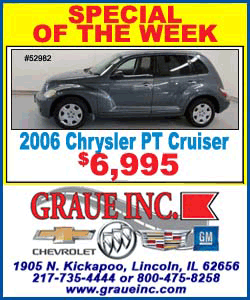|
 The cost to buy the same car: $38,500 or about $627 per month. The cost to buy the same car: $38,500 or about $627 per month.
Twenty-five-year-old Sharif Alkatib, an engineer in Los Angeles,
California, also prefers leasing over buying for the lower payments.
"I get more car for less money and limit my exposure to the used car
market," says Alkatib.
Millennials like Murphy and Alkatib may have a reputation for not
being as materialistic as previous generations, but when it comes to
what they drive, they like a nice set of wheels - even if it means
sacrificing the long-term financial benefits of car ownership.
A recent study by Edmunds.com found the percentage of millennials
(ages 18-34) who are leasing cars is up 46 percent over the last
five years compared to 41 percent for all car shoppers.
Leasing accounted for almost 29 percent of all new car purchases by
millennials in 2015 so far, according to the survey.

"In most cases, leasing opens the door to the bells and whistles
that they couldn't otherwise afford," says Jessica Caldwell,
Edmunds.com director of industry analysis.
Millennials have a reputation for doing the math and not
overspending. They just want more for their money in the short term.
That is why Nicholai Moguet, 31, who is an information technology
specialist in Irvine, California, just leased his second car.
"It definitely allowed me to get a better car than I would have if I
chose to buy, which was important to me because I prefer driving to
be something as enjoyable and looked forward to as possible, Moguet
explains.
A friend introduced Moguet to the idea of leasing with the motto:
Yes, I will always have a car payment, but I will always have a new
car.
Most of the Edmunds.com survey respondents said they would not put
down more than about $3,000 for a new car purchase, and that they
were willing to pay no more than about $300 per month.
That budget will get a new car buyer a vehicle worth $20,000,
according to Edmunds.com calculations. But if they are willing to
lease? They can drive away with a vehicle priced as high as $35,000.
Not a bad trade up for the same cash outlay and budget.
[to top of second column] |

Millennials see other reasons to lease. Murphy, for example, does
not want to invest in a depreciating asset. Technology gets outdated
quickly these days, so it does not make sense to hold on to cars for
more than a decade even if, in theory, it is a better financial
move, Murphy notes.
"I firmly believe in the adage: 'Rent depreciating assets, buy
appreciating ones,' " Murphy says.
Leasing gives him the flexibility of a pre-determined budgetary
expense and takes away the risk of resale value, he notes. "If I get
into an accident, the car will have significant diminished value
when re-sold."
This thinking is a radical change from the traditional advice that
owning a car, and keeping it until the bitter end, is always the
better financial move. The average car on the road today is about 11
years old. The typical buyer who pays off a car loan in five years
comes out ahead financially.
But millennials are at a time in their lives when their needs are
constantly changing. So the small inexpensive car that they can
afford to buy might not be the right car a few years down the road
(pun intended) if they get married or have kids.
The other big game changer: Technology. Millennials want to stay up
to date. And leasing offers the smartest way to stay ahead of the
curb.
(Editing by Lauren Young and Cynthia Osterman)
[© 2015 Thomson Reuters. All rights
reserved.] Copyright 2015 Reuters. All rights reserved. This material may not be published,
broadcast, rewritten or redistributed.
 |